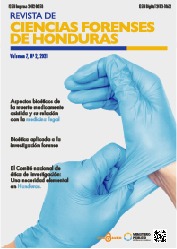Bioethics in Forensic Investigation.
Keywords:
Bioethics, forensics expertiseAbstract
The administration of justice expects the investigating expert, not to rule in favor of one party or the other, but to provide solid and truthful information on the matter of its competence to enlighten the lawyers who, in turn, must train their own opinion. Problems such as financial retribution, not having all the sources of information, having participated in the patient's therapy, taking positions in favor of the accused or victims, signing reports from colleagues without reviewing them, deviating from objectivity and prudence , can come to light in a trial and hinder the work, not only of the investigator in charge of the case, but of all his colleagues.
In forensic work, ethical dilemmas arise that have been little addressed, so it is necessary to promote discussions with all the actors involved in the expertise in order to guarantee that the bioethical approach is increasingly considered in forensic investigation.
Downloads
1396
PDF (Español (España)) 469
Published
How to Cite
Issue
Section
License
Copyright (c) 2021 https://creativecommons.org/licenses/by-nc/4.0/deed.es)

This work is licensed under a Creative Commons Attribution-NonCommercial 4.0 International License.
El autor conserva los derechos de autor bajo los terminos de una licencia CC NC 4.0






